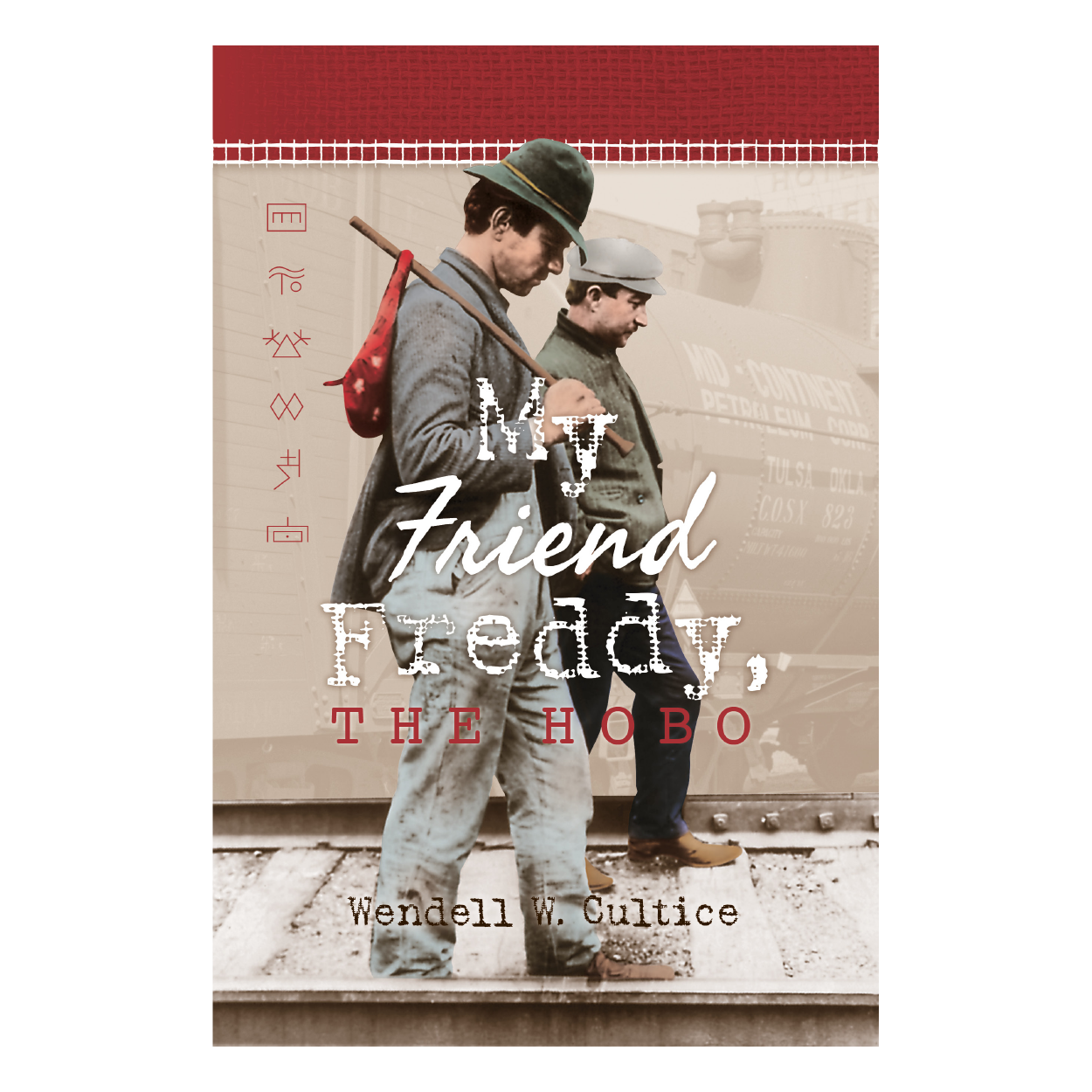My Friend Freddy, The Hobo
- 76 pages
- 6 x 9
- Softcover
- ISBN 978-1939710-574
- Copyright 2017
By Wendell W. Cultice
Hobos formulated a code of ethics for themselves, established a glossary of terms indigenous to their lifestyle, and created a symbolic communication system. Why did they choose to live such an unconventional lifestyle? Where did they find their clothes? Where did they obtain their food? How did they protect themselves? Where did they locate work? And finally, how did they entertain themselves when they weren't riding the rails? Those answers are all within this little-known history of the hobo culture that existed in America from 1875 to 1940.
Ninety-four-year-old Xenia, Ohio native, Wendell Cultice, recalls his childhood relationship with his hobo friend, Freddy, while growing up in his small, midwestern railroad town.
- 76 pages
- 6 x 9
- Softcover
- ISBN 978-1939710-574
- Copyright 2017
By Wendell W. Cultice
Hobos formulated a code of ethics for themselves, established a glossary of terms indigenous to their lifestyle, and created a symbolic communication system. Why did they choose to live such an unconventional lifestyle? Where did they find their clothes? Where did they obtain their food? How did they protect themselves? Where did they locate work? And finally, how did they entertain themselves when they weren't riding the rails? Those answers are all within this little-known history of the hobo culture that existed in America from 1875 to 1940.
Ninety-four-year-old Xenia, Ohio native, Wendell Cultice, recalls his childhood relationship with his hobo friend, Freddy, while growing up in his small, midwestern railroad town.
- 76 pages
- 6 x 9
- Softcover
- ISBN 978-1939710-574
- Copyright 2017
By Wendell W. Cultice
Hobos formulated a code of ethics for themselves, established a glossary of terms indigenous to their lifestyle, and created a symbolic communication system. Why did they choose to live such an unconventional lifestyle? Where did they find their clothes? Where did they obtain their food? How did they protect themselves? Where did they locate work? And finally, how did they entertain themselves when they weren't riding the rails? Those answers are all within this little-known history of the hobo culture that existed in America from 1875 to 1940.
Ninety-four-year-old Xenia, Ohio native, Wendell Cultice, recalls his childhood relationship with his hobo friend, Freddy, while growing up in his small, midwestern railroad town.

